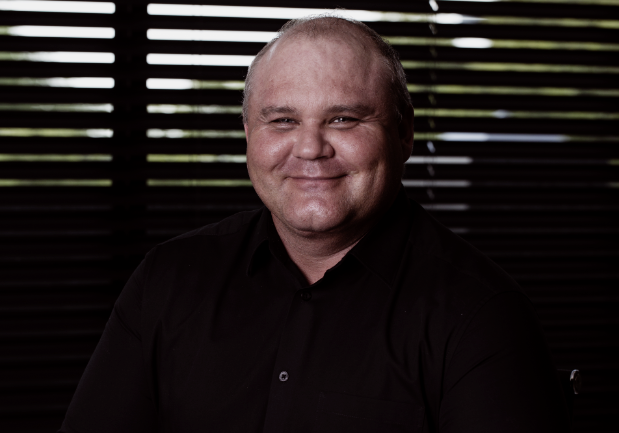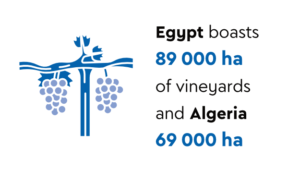Many experts claim that at least 50% of businesses never achieve their projected financial and market goals, regardless of their success. While the overarching objective of every company is to make a profit, attaining such a goal is dependent on a myriad strategic understandings of markets; business nous; and the operating environment. Company owners can also be sidetracked by complicated procedures and unexpected crises, such as the COVID-19 pandemic, and while their business offering remains sound and has value and potential, it never gains the expected momentum.
This is the type of business that Innovative Solutions Group (ISG) finds exceedingly attractive. As a private investment holding company, it exists to build and grow some of Africa’s most successful businesses by acquiring them, or a share thereof, to ensure the delivery of consistent and strong returns to its stakeholders. Yet it means that ISG also acquires any existing problems, which it solves with the introduction of new efficiencies and strategic oversight to accelerate business performance, growth and returns.
The foundation of ISG acquisitions is built on a passion for entrepreneurship and, as founder and CEO Arnoux Maré describes, ‘an appreciation of the value of quantity, as well as excessive quality’. He also says that ‘ISG does not rely on a single investment to drive growth or profits either; we spread our risk to drive growth’.
This formula has been immensely successful, based as it is on the same code of ethics that Maré adopted when he opened the ISG business just 11 years ago, with an initial investment in a single company of just ZAR500. Today ISG is a multibillion-rand enterprise with nine successful and independent subsidiaries working within a diverse range of industries, and it offers employment to some 38 000 people.
Acquisitions and mergers are a crucial channel for investment in Africa as they allow companies to consolidate their position in a market, which not only makes them more competitive but also provides them with better access to global and local opportunities. Without acquisition movement, many emerging businesses will not realise their potential.
This is one of the reasons why ISG is interested in emerging and existing small businesses, prompting a current portfolio that’s as diverse as it is ingenious. Innovative Learning Solutions, for example, is Africa’s largest truck-driver training and testing centre, responding to the growing shortage of skilled, professional drivers needed to support the growing online and freight boom that manifested during the COVID lockdowns. Similarly, Innovative Staffing Solutions is a leading operational outsourcing company in Africa, according to Maré. It provides companies with crucial support and expertise in operational management and aligned business services.
‘Here we have grown our client base to more than 400 businesses in 10 years, with those clients realising an average 10% cut in operational expenses,’ he says.
A recent acquisition by ISG, in mid-2022, is a 50% share in MJL Communications, a telecoms service provider that has allowed ISG to enter the ICT sector with the aim of benefiting from the digital transformation of lifestyles and businesses. ‘We identified that it had the potential to grow into a huge company, and have since assisted its management team to develop a holistic marketing strategy and thereby improve its financial well-being, while adding capital and developing planning support,’ says Maré.
‘MJL is but one example in our portfolio that proves the importance of being business nimble, and within that framework I include adaptability to market trends. Start-up businesses are also in a prime position to exploit new opportunities.’
The acquisition decisions are made by the ISG Council, which weighs investments based on an understanding of the strengths and weaknesses of an organisation, its potential and its management systems.
‘People are the primary factor behind our acquisition decisions,’ says Maré. ‘We believe that our partners must match our passion for growth and have aligned business ethics. In effect, we invest as much in people as we do in the businesses. It has been very sad to see how many retail, hospitality and financial sector companies have struggled in the past two years; more so given the resultant impacts on unemployment.’
South Africa currently has the highest unemployment rate in Africa at some 34%, so even the smallest of efforts to improve this status quo are a priority for ISG businesses, such as with the acquisition of Priva Restaurant and Cigar Lounge, in Pretoria, South Africa, where ISG has doubled its staff in less than two years. It has also won accolades, such as Best Fine Dining Restaurant, Best Luxury Restaurant, and Best Restaurant of Pretoria 2022.
Keeping tabs on a wide range of sectors has led ISG to conclude that transport, retail, manufacturing and distribution are showing robust growth in the wake of the COVID pandemic. ‘Manufacturing is particularly important for a nation like South Africa, as it tends to import rather than produce its local needs,’ he says. ‘In so doing, the nation has become vulnerable to global supply-chain disruptions, and that is worsened by the pressure its harbours are under to dock and unload ships, leading to widespread shortages. This scenario, plus the closure of a number of textile manufacturers and factories during lockdown, has created new opportunities for businesses and investors to benefit from surging demands.’
Quick to realise both the retail and manufacturing opportunities, ISG has conceptualised and developed Leisure & Adventure in Limpopo, South Africa. This store caters to the outdoor leisure market, including sales of high-end brands and its own range of clothing, which Maré and his wife Kiara developed in collaboration with local designers. ‘We now also own a clothing production facility in support,’ says Maré.
‘I firmly believe that manufacturing is critical to the future of African economies. If positive labour relations can be maintained, there is a chance to boost manufacturing industries to new heights and create many employment opportunities. With the right management support and capital, there exists the potential for this sector to achieve meteoric growth and elevate those businesses to produce some of the biggest brands on the continent.’
Likewise, ISG is seeking to disrupt established brands within the financial sector with the launch of private property portfolio AKM Property Investments.
This has a condition, which requires a minimum investment of ZAR1 million and that investors keep their capital invested for at least five years. ‘By so doing we are able to double their investment within those five years; a return that is unrivalled by most other investment vehicles in Africa,’ he says.
Maré believes there are three key focus areas investors should prioritise once a business or a share thereof is acquired, namely proper brand building and marketing; strategic thinking; and simplifying the business. ‘Firstly it’s important that businesses don’t cut back their marketing efforts during financially constrained periods; it’s precisely then that marketing budgets should be doubled to grow sales and capture market share.’
Strategic thinking involves looking outwards at new trends and their potential impact on consumers and their behaviour, and adjusting business strategies accordingly. ‘It also means ensuring that you build a stable business before attempting to achieve high-growth figures,’ says Maré. ‘Without doing so the entire business is at risk, with every rand earned representing a cost to a business, be that operationally, financially or from a planning perspective.’
Maré’s emphasis on keeping things simple is sage advice. ‘Far better to focus on a logical, simple business idea than trying to manage a complex unknown. The simpler a business is to understand, the more likely a client will become brand loyal. Entrepreneurs need to focus on aligning their businesses with their customers rather than the other way round. This is the only way forward for our African enterprises to survive.’


















